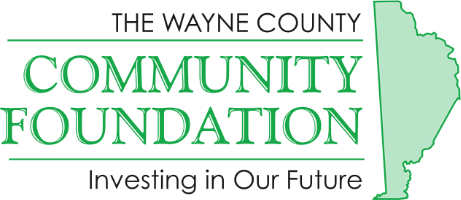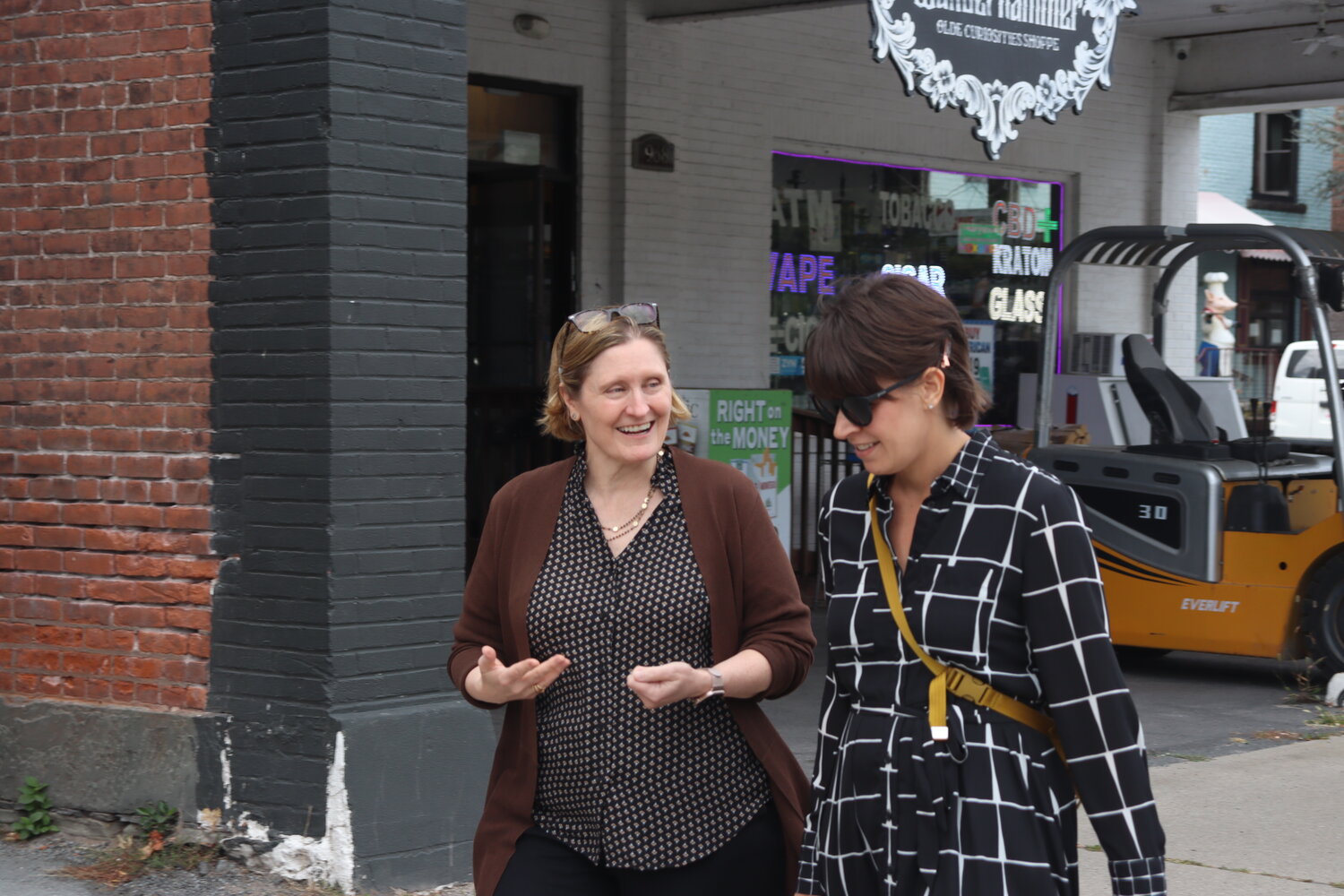Honesdale hosts president of Philadelphia Federal Reserve Bank
Federal Reserve Bank of Philadelphia President Anna Paulson visited Honesdale on Monday, September 22, to talk with the local business community and get an on-the-ground perspective of the current state of the American economy.
The Federal Reserve Bank of Philadelphia is one of 12 banks across the United States that collectively set monetary policy and ensure the stability of the financial system; the Philadelphia Fed oversees Delaware, Southern New Jersey and Eastern Pennsylvania. Paulson became the bank's president on July 1.
"Being here, seeing what's really happening on the ground is super important to me, to kind of connect what's happening on Main Streets—like literally Main Street here—with what happens on Wall Street or what happens around the Federal Open Market Committee table," Paulson told the River Reporter.
During her visit, Paulson talked with local community leaders and visited several local businesses, including the coffee shop Greenhouse 863 and the boutique Gather, hearing about local issues including the lack of affordable housing. Paulson called the collaboration she found in Honesdale "amazing" and said the extent of the community's cooperation stood out compared to other places in the country.
Visiting communities like Honesdale informs the work Paulson does in a number of ways, she said.
While she has access to a wide range of statistics, "The numbers and the data are usually backwards looking, she said—people have had to gather the data from stuff that has already happened.
In contrast, businesses can offer a forward-thinking perspective.
"When you're talking to businesses and you're asking, 'Hey, what are you expecting for Christmas? What are you expecting for next season? What are you worried about now?', you're looking forward," she said.
Also, part of her job involves communicating about the state of the economy, she said. "For that it's a lot better to have examples and real people that folks can relate to."
"I don't want to tell you 17 statistics," Paulson added. "I want to tell you a story that has real people involved."
The stories of Honesdale
Paulson visited several Main Street businesses over the course of her visit.
Caitlin Cowger owns Greenhouse 863. She bought the Main Street building it is in during the pandemic, wanting a place away from the city and identifying the need for a coffee shop on Honesdale's Main Street, and spent several years renovating it before opening it just under a year ago.
Cowger said that rising prices and the impacts of tariffs were putting the business under pressure.
The business already doesn't make money, but roughly breaks even, said Cowger. With the price of coffee on the rise, the way the business can stay afloat is through the other items it sells, such as gifts, plants and vintage clothes. But the impact of tariffs has erased the business' margin on gifts, leaving the plants and vintage clothes to keep it afloat.
The number one concern on business' minds? Housing, and the lack thereof.
Wayne County has been working for years to study and solve the issues of its housing market: click here for more reporting on that process. According to Ryanne Jennings, president of the Wayne County Community Foundation, studies have shown the county needs 1255 new houses over the next five years to meet demand.
Olivia Santo owns Gather, a boutique selling women's clothes, home decor and gifts for adults, kids and babies. Having grown up in the area, she moved back because there were cool things starting to happen and she wanted to add to it with a business appealing to a Millennial crowd.
Santo said that the rising prices of Wayne County homes since the pandemic changed the timeline for what she considered success with her business.
"Coming from a personal standpoint, [I was] finding the success in the business, starting to make enough money to be able to purchase a home, and then [finding], 'Oh, wait, I can't anymore,'" she said. "It just moved the benchmark a little bit, moved the timeline a little bit longer out."
The lack of housing makes it difficult to find workers, especially quality workers, said Santo.
Cowger said she had looked into buying a property and renovating it into inexpensive apartments, to add to the pool of workforce housing. However, she couldn't find anything that would work—the state of Wayne County's housing stock means that even expensive properties need a significant amount of renovation to be made livable.
A house might sell for $300,000 and then need hundreds of thousands more in work, according to Santo.
"Who has the liquidity for both of those things?" Paulson asked.
Not Santo, who said she ultimately chose to build a house rather than buy one.
Honesdale on the rise
When asked, Santo told Paulson she didn't know what the immediate future would bring for her business. "Every time I try to figure out what's going to happen, I'm usually wrong," she said.
But over the long term?
"I am very optimistic about the future of this town," she said.
Paulson highlighted the collaboration she saw going into giving the town that bright future.
Talking with Cowger, she said, "I've only been here for like a couple of hours, but it's just really incredible to see how many people come together to try to create and sustain this community, and how much people care about it."
"There are so many people who are invested in the success of this community," she told Santo, "[who are] well aware of the challenges but who are really working together to solve them. It's really fascinating."
News and Events
- Honesdale Selected to Join Six Communities Along the PA Route 6 Heritage Corridor as a PA Heart & Soul Community
- Annual Scholarship Program 2026
- What do you do when everything feels out of your control?
- Honesdale to be part of PA Heart & Soul
- Act 50 of 2025 Pennsylvania’s Intestate Succession
- Capacity Building Funding from ARC
- Support Heading to the Route 6 County Seat of Wayne County
- 13th Annual Herd the Curd Race Raises $25,000
- Creative Communities Art Trail Hamlin Opening
- Community Tour: Wayne County


